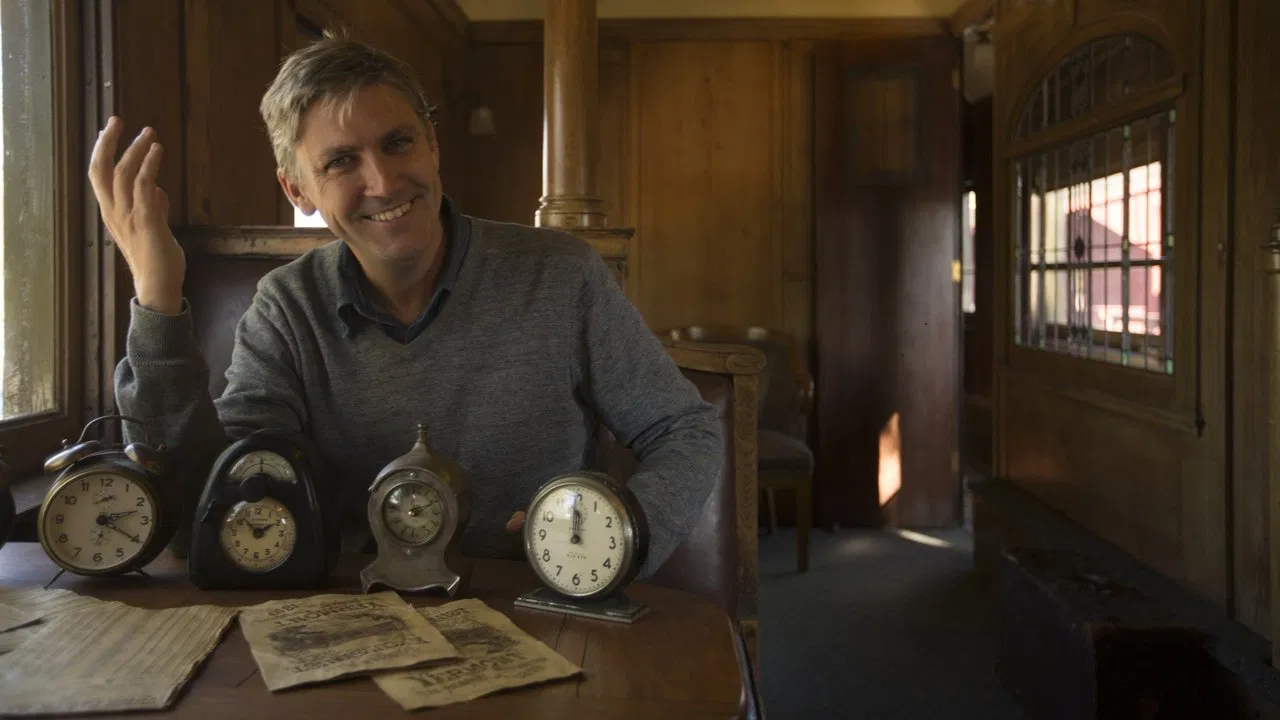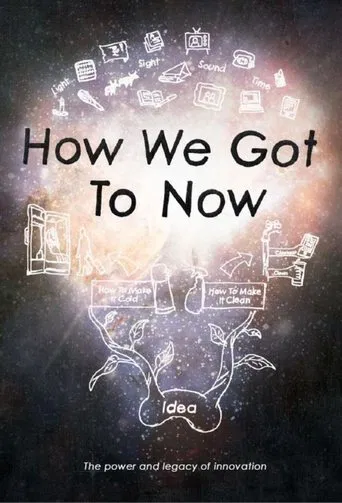

For such interesting topics, I was really disappointed.It was quite obvious that this production crew was more concerned with creative 'shots' and post production editing than actually making a useful documentary. It got to the point where I was actually laughing at how hard they were trying to be creative and original with the production shots. There were also a ton of stock footage shots that had very little to do with the specific topic at hand. Like, footage of people walking around modern-day downtown Chicago.The host was brand new to me, and, I couldn't stand him. Very condescending and somewhat annoying. I love science and shows showcasing science, but this was just a show about how to have cool camera shots ruin a good show.
... View MoreA great series, very informative, but I kind of feel like it should have been called How America Got to Now. Beginning with the 1st episode, you would think that Chicago was the very 1st city in the world to create a sewer system. Not so - every city all the way back to Mesopotamia had a sewer system, but around the mid 19th century many had outgrown their old sewers and began updating them. At the same time Chicago was updating theirs, London was doing the exact same thing and without any help from the Americans. By the end of this segment the viewer is left with the impression that the Chicago sewer system was the sole inspiration for the London Underground - absolutely not true. The Brits were the 1st to invent the steam engine, the train and the underground subway without a single American to help them along. Here are some more American-centric examples from the series: The host goes straight from whale oil to the electric light without ever mentioning gas lights. Gas lights (another British invention) predated the electric light by about 80 years and were used throughout Europe. In the episode about glass the host barely mentions the camera and fast forwards to the camera NASA developed for the moon landing. BTW both the still photo camera and the movie camera were French inventions, but I suspect that's why they weren't included in the show. In the episode about sound, the host fails to talk about the invention of the radio and skips ahead to the vacuum tube which amplified the radio. But I guess that's because Marconi was an Italian and Lee DeForest was an American. In spite of these glaring omissions, this is still a really great series full of very important inventions that have shaped our world today. So I would encourage everyone to watch it, but then afterward look up gas lights, the camera and the radio and read about all of the non-Americans who also shaped our world.
... View MoreI haven't read the book, and I found this series brilliant. Why? Because it shows connected thinking, which reflects the subtle and pervasive effect of social influence.Steven Johnson brings to our attention a few specific people in their specific social contexts, bringing humanity to the challenge facing the inventor. Quite often, the invention is met with ridicule, e.g. Heddy Lammar's frequency jumping idea, before it is adopted, in this case to protect inter-ship communication. And then, Steven shows the influence.Steven is interested in pervasive technology changes. Where one invention creates a platform of social change, e.g. the humble neon light and signage, and the corresponding business invention of the 'franchise'.As a presenter, Steven keeps it light. He is dealing with world-changing inventions and some genius characters. He could easily be a nerd, but he is charming and self-effacing. For all his humour, notice how he ends most of his skits with an understated though defined moment of gravitas. Requires a keen listener, a sensitive viewer, which I believe the material deserves.I haven't seen anything as intelligent as this on terrestrial TV. In the UK, it is on BBC 3, and I wouldn't be surprised if it reprises on the more mainstream channels.
... View MoreI found out about Steven Johnson with his book "Mind Wide Open" which I listened to in audio-book format while on a driving trip. I liked his style and clear way of writing, but mostly what I liked is that he was telling me, not all, but mostly about stuff I did not know about at the time. He sparked my interest in neuroscience, which I suppose I did not really know existed at the time. I heard Steven talk on his book lectures twice. I am predisposed to look favorably on him and his work. "How We Got To Now" cannot help but remind me of the series I watched as a teenager, "Connections", by James Burke. Burke had a sophisticated worldly point of view and spoke like an adult. Before Burke was Jacob Bronowski's "Ascent Of Man" which started this type of programming ... with me anyway. I want to like and watch "How We Got to Now", but I cannot help but compare it negatively with these other programs that I think far outclass it, as I thought the original "Cosmos" series outclassed the new series that was released on PBS. I am left wondering ... what happened. It's not that Johnson's effort is bad ... it is not, in fact it is fairly good. The problem is that it is the same as or less of the the previous versions, and seems to be dumbed down. I am picked by and detest this trend in America. In every single section of this episode of this series there is Johnson full in the camera acting the clown. When did every public programming about science, math, economics, or anything more complicated than Kim Kardashian's ass become something to be ashamed of, or clown about, or more specifically act stupid about? There's Johnson at Heathrow Airport making dumb jokes about how bad he is at directing flights in the Air Traffic Controller simulator ... which of course he would be since he just sat down at the seat. Same with the worldwide time synchronization organization. The cue seems to be these things are something to joke at, like calling Galileo a misfit nerd. So far everything I am seeing seems aimed at adolescent children with ADHD, dumbed down so they will not feel bad. Maybe that is necessary, or maybe it is to appeal to the parents so they will be members of PBS ... I don't know ... but what I do know is that this is less than the stuff what was explained earlier in other series that seemed much better, with a more inspirational view of Western Civilization, science and technology. How is it that we can be going backwards? How is it that these things are dumbing down at a time when we know more and depend more on technology than at any other time, not to mention that the pace of change is not at a level that will hit most of us in a very disorienting way before we are even old or retired. There is no vision in this program, there is no wonder, it's almost like something a smart person would write to seem stupid so he will feel less likely to be rejected. Is there a conspiracy to dumb down society and the media? If there is I'd want to think that Steven Johnson would have nothing to do with it. So what is going on? Why don't we get anything useful on Commercial Television for our citizens, and why doesn't Public Broadcasting challenge and inform anymore? Has our national intelligence level really dropped in the last 30 years? I think this program would be aimed at the Jr. High School level, so maybe I am not a fair reviewer.How come this series seems so lightweight? 3/5 and being kind.
... View More